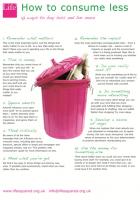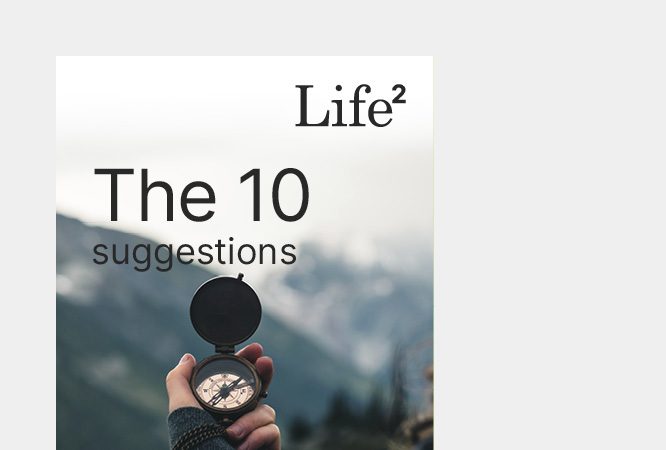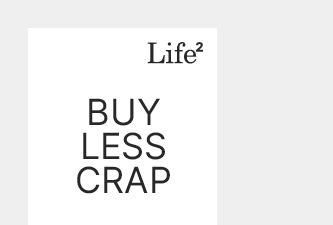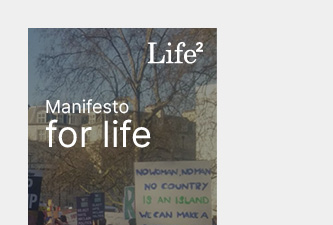1. Remember what matters
This is the most important point. List the things that really matter to you in life. Is a new iPad really one of them? Make sure you're spending your life on the things that really matter to you.
2. Time is money
Remember that you invest hours of your time - and your life - to earn the money that you use to buy each new thing. Could you spend fewer hours earning money, buy less stuff and use your extra time to do things that really matter to you instead?
3. Ignore adverts
Adverts influence us to want more stuff. Try to actively ignore them - switch channels when they're on TV, flick past them in magazines, and ignore them at the station.
4. Think critically
Be aware of all the other messages that can influence you to consume more, including peer group pressure, special offers in shops and newspaper and magazine articles. See our 'The problem with consumerism' guide for more information on this.
5. Mend what you've got
We find it too easy to throw things out and buy new ones. If possible (and economical), mend what you have rather than buy another.
6. Remember the impact
Even the most seemingly inconsequential item – from a lettuce to a paper clip – leaves a trail of impacts on people and the environment when it is being produced. Bear this in mind when you're working out whether you really need something.
7. Do you really need it?
When you see something you'd like to buy, ask yourself 'do I really need it?'. Don't try to rationalise your answer - just be honest with yourself.
8. Do something more interesting
There are many other things you can do with your time that are more enjoyable and fulfilling than shopping – from playing to chatting. See our leaflet 'Better than shopping' for more ideas.
9. Develop a sense of anger
When one realises that most adverts are just attempts to manipulate you to spend money, this can cause annoyance. Use this sense of annoyance to fire your determination to prevent advertisers manipulating you.
10. Use the money for something else
Think about better ways you could use your money than buying more stuff. For example, you could give it to charity or to people who need it more than you, you could you buy some time to do things you enjoy or you could save it for another time.
© Life Squared 2012





